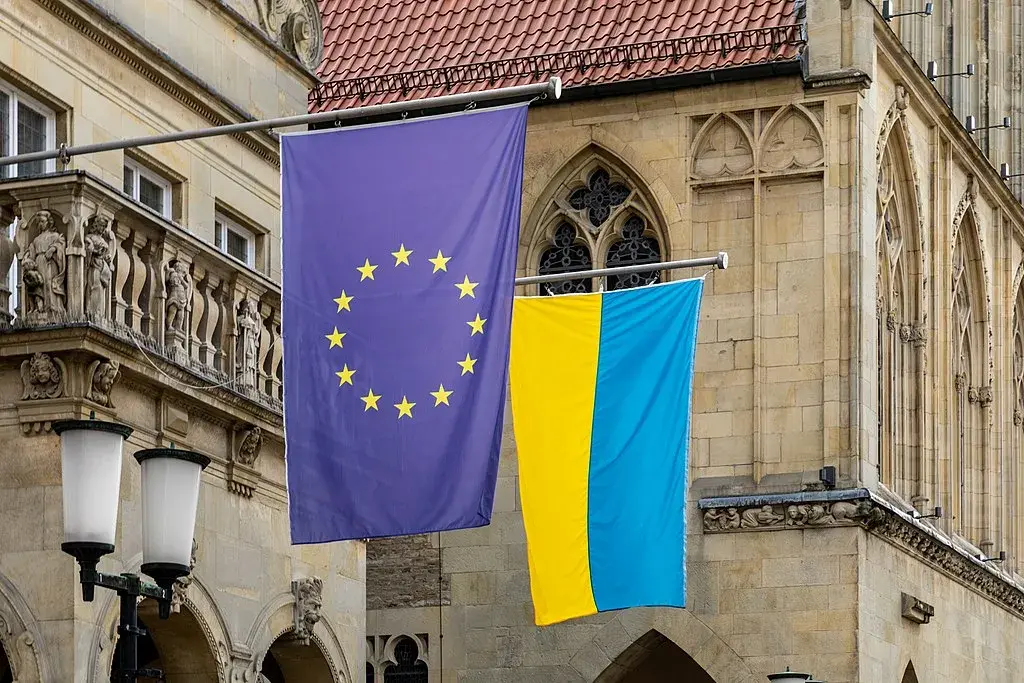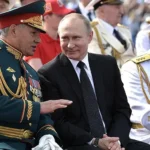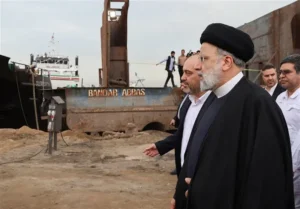The deal agreed by the bloc’s 27 members would need a yearly discussion and a review in two years “if needed”.

The European Union reached a funding agreement for Ukraine worth over $50 billion on Thursday at an important summit.
The funds had been stalled since December when Hungary’s Prime Minister Viktor Orban vetoed the agreement at an earlier summit. Without an agreement, Ukraine would have faced a serious setback, as its outnumbered and outmatched forces are facing a renewed Russian attack. At the same time, the United States has stopped providing military aid as Washington is debating over future funding for Kyiv.
The EU Council published an official text that said the 27 member states had approved €50 billion ($54 billion) for Ukraine from 2024 to 2027. It specified €33 billion as “loans” and €17 billion as “non-repayable support” that could come from “frozen Russian assets”. The text repeatedly mentions that the money is part of Ukraine’s journey to join the bloc.
“We have a deal. #Unity All 27 leaders agreed on an additional €50 billion support package for Ukraine within the EU budget,” the EU Council’s President Charles Michel wrote on X, formerly Twitter. “This locks in steadfast, long-term, predictable funding for #Ukraine.
“EU is taking leadership & responsibility in support for Ukraine; we know what is at stake.”
Ukraine’s President Volodymyr Zelensky supported the decision after it was announced. “Grateful to @CharlesMichel and EU leaders for establishing the €50 billion Ukraine Facility for 2024-2027,” he tweeted.
“It is very important that the decision was made by all 27 leaders, which once again proves strong EU unity.
“Continued EU financial support for Ukraine will strengthen long-term economic and financial stability, which is no less important than military assistance and sanctions pressure on Russia.”
A senior European diplomat told CNN that the deal agreed by the bloc’s 27 members would need a yearly discussion and a review in two years “if needed.” They explained that this language was crucial because it didn’t give Orban a permanent veto.
Orban had opposed the deal because he did not want the funds to come from the EU budget, meaning funds would be taken from EU member states and sent to Ukraine. He also said Hungary could only agree to send the money if there was an annual review.
Orban’s critics quickly accused him of blocking the deal because the EU is currently holding back funds for Hungary due to its violation of rule of law standards. Orban and his government have repeatedly denied that there is any link between the two, or that they have broken EU rules.
The diplomat said the deal as outlined by Michel does not release EU funds for Hungary, though the summit will go on throughout Thursday.
European officials had worried that Orban would keep blocking the deal not only because of money to Hungary being frozen by Brussels, but also because of his close ties with Russian President Vladimir Putin.
Orban’s critics across Europe think that he was using that relationship to pressure his European allies by acting as a Kremlin agent: Be tough on support for Ukraine, a main priority for most of Europe, in exchange for other benefits.
Before the summit, EU foreign affairs chief Josep Borrell admitted that the bloc would only send about half of the 1 million artillery shells it had promised to Ukraine by March, moving the self-imposed deadline to the end of the year. “There was some initial inertia, but then once things get set in motion, they can speed up,” Borrell said, according to Reuters.
European ammunition supplies have been under more scrutiny since the start of the war, with fears that stocks are much lower than what would be needed if a wider war broke out across the continent.







